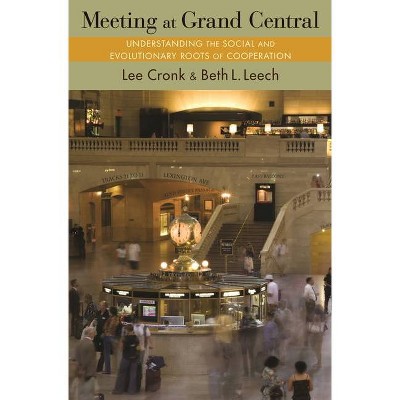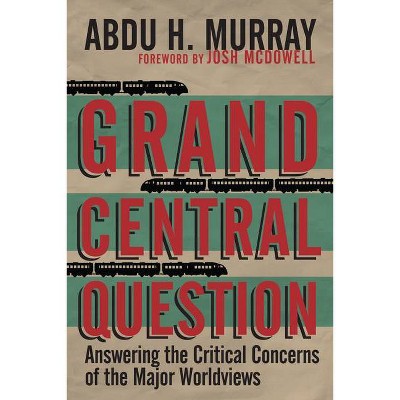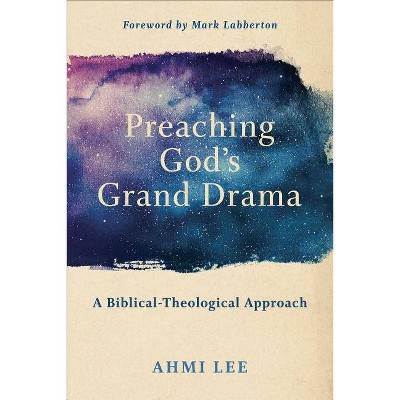Meeting at Grand Central - by Lee Cronk & Beth L Leech (Paperback)

Similar Products
Products of same category from the store
AllProduct info
<p/><br></br><p><b> Book Synopsis </b></p></br></br><p><b>A revolutionary approach to the study of cooperation that unites evolutionary biology and the social sciences</b> <p/>From the family to the workplace to the marketplace, every facet of our lives is shaped by cooperative interactions. Yet everywhere we look, we are confronted by proof of how difficult cooperation can be--snarled traffic, polarized politics, overexploited resources, social problems that go ignored. The benefits to oneself of a free ride on the efforts of others mean that collective goals often are not met. But compared to most other species, people actually cooperate a great deal. Why is this? <p/><i>Meeting at Grand Central</i> brings together insights from evolutionary biology, political science, economics, anthropology, and other fields to explain how the interactions between our evolved selves and the institutional structures we have created make cooperation possible. The book begins with a look at the ideas of Mancur Olson and George Williams, who shifted the question of why cooperation happens from an emphasis on group benefits to individual costs. It then explores how these ideas have influenced our thinking about cooperation, coordination, and collective action. The book persuasively argues that cooperation and its failures are best explained by evolutionary and social theories working together. Selection sometimes favors cooperative tendencies, while institutions, norms, and incentives encourage and make possible actual cooperation. <p/><i>Meeting at Grand Central</i> will inspire researchers from different disciplines and intellectual traditions to share ideas and advance our understanding of cooperative behavior in a world that is more complex than ever before.</p><p/><br></br><p><b> From the Back Cover </b></p></br></br><p>"An evolutionary psychologist and a political scientist somehow accomplish the spectacular feat of explaining human cooperation by delineating diverse accounts of the roadblocks to it. Cronk and Leech persuasively argue that cooperation is based in complicated emergent institutions surrounding indirect reciprocity but also in basic individual biological and evolutionary realities. They are a great team."<b>--John R. Hibbing, University of Nebraska-Lincoln</b></p><p>"This is a wonderful book. Ambitious and beautifully written, it unites our understanding of cooperation across disciplinary divides--especially evolutionary biology and social science--and offers extremely useful comparisons of the various theories of cooperation from different fields, describing their origins, advocates, and controversies."<b>--Dominic Johnson, University of Edinburgh</b></p><p>"Cronk and Leech argue for greater cross-fertilization between evolutionary biology and the social sciences in the study of cooperation, coordination, and the provision of collective goods. <i>Meeting at Grand Central</i> has the potential to serve as a catalyst that helps bring such interdisciplinary work into the mainstream."<b>--Amy R. Poteete, coauthor of <i>Working Together: Collective Action, the Commons, and Multiple Methods in Practice</i></b></p><p/><br></br><p><b> Review Quotes </b></p></br></br><br><i>Meeting at Grand Central</i> would make a great text for an advanced undergraduate or graduate course on cooperation in anthropology, economics, sociology, or political science. There is something for everybody in this challenging and enlightening read.<b>---James L. Boone, <i>Journal of Anthropological Research</i></b><br><br>[T]he major strength of the book clearly lies in its ability to stimulate curiosity for further research. . . . [R]eaders who like to read scientific content in an easily accessible way and become inspired to read more will not be disappointed.<b>---Julia Schindler, <i>Journal of Artificial Societies and Social Simulation</i></b><br><br>Better understanding how cooperation emerges from the behavior of interacting individuals represents a crucial endeavor that can only benefit from a multifaceted approach. . . . I am hence confident that . . . readers, independent of their disciplinary background, will not only enjoy the reading, but also find it useful for their work and research.<b>---Giangiacomo Bravo, <i>International Journal of the Commons</i></b><br><br>Cronk and Leech have provided a solid platform for taking the analysis of social cooperation and coordination in a variety of directions.<b>---Richard E. Wagner, <i>Review of Austrian Economics</i></b><br><br>The sheer breadth of cases addressed in this book makes it an exhilarating read. . . . Cronk and Leech provide a wonderfully comprehensive reference for those interested in co-operation, accessible and engaging enough for an upper-level undergraduate course on the subject. It sets the groundwork to think carefully about how we should model the world, opening the door for future research to develop prescriptive as well as descriptive models, allowing social scientists the ability to rigorously confront this diverse space of problems.<b>---William J. Berger, <i>Journal of Politics</i></b><br><br>The study of cooperation is a multifield behemoth, and <i>Meeting at Grand Central</i> admirably covers considerable ground. Importantly, it does this in an accessible way, by describing select theories and concepts with clear and vivid examples. Seeing the current fragmented state of scholarship on cooperation as a coordination problem, and thus a problem of common knowledge, the authors also devote considerable time to developing a common set of definitions and concepts.<b>---Daniel J. Hruschka, <i>Current Anthropology</i></b><br><p/><br></br><p><b> About the Author </b></p></br></br><b>Lee Cronk</b> is professor of anthropology at Rutgers University. He is the author of <i>That Complex Whole: Culture and the Evolution of Human Behavior</i>. <b>Beth L. Leech</b> is associate professor of political science at Rutgers University. She is the coauthor of <i>Basic Interests: The Importance of Groups in Politics and in Political Science</i> (Princeton).
Price History
Price Archive shows prices from various stores, lets you see history and find the cheapest. There is no actual sale on the website. For all support, inquiry and suggestion messagescommunication@pricearchive.us


![American Experience: Grand Central [DVD] [2008]](https://pisces.bbystatic.com/image2/BestBuy_US/images/products/1662/16622415_so.jpg)

















